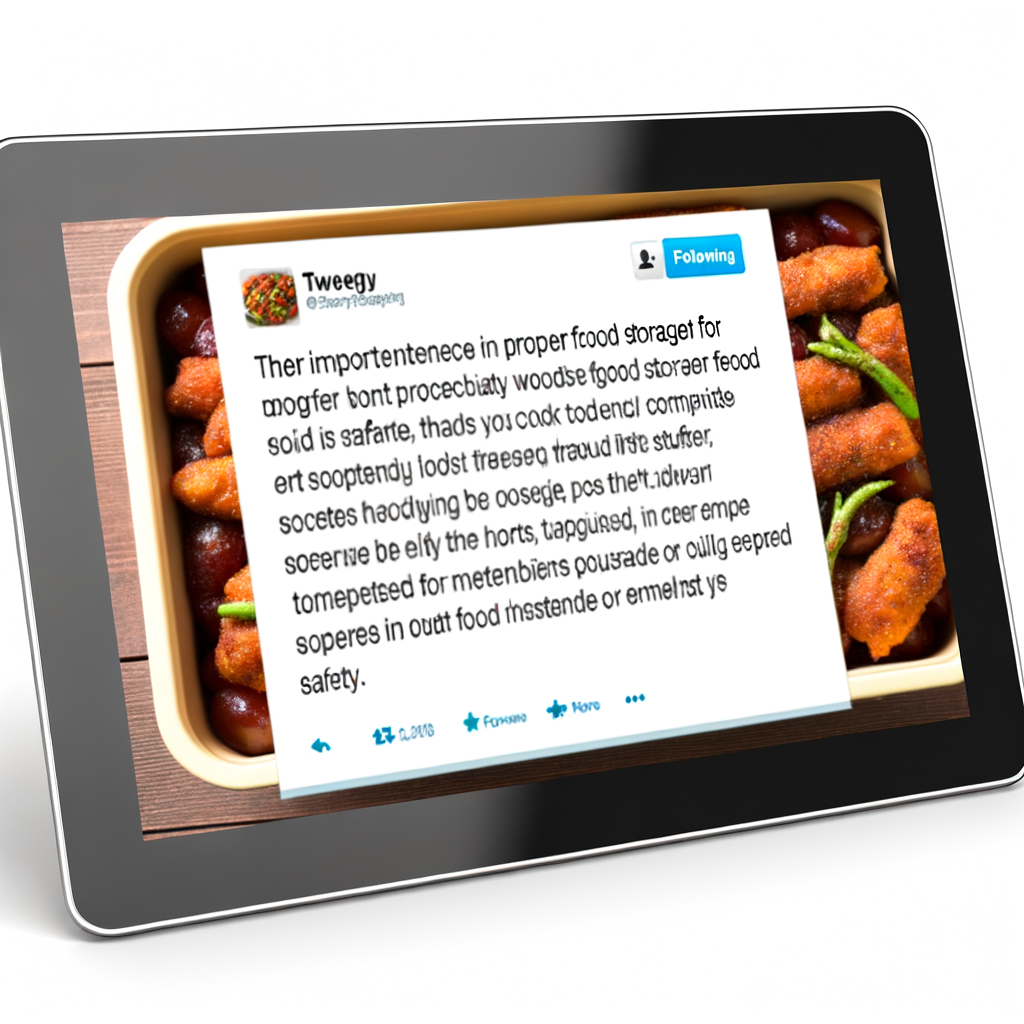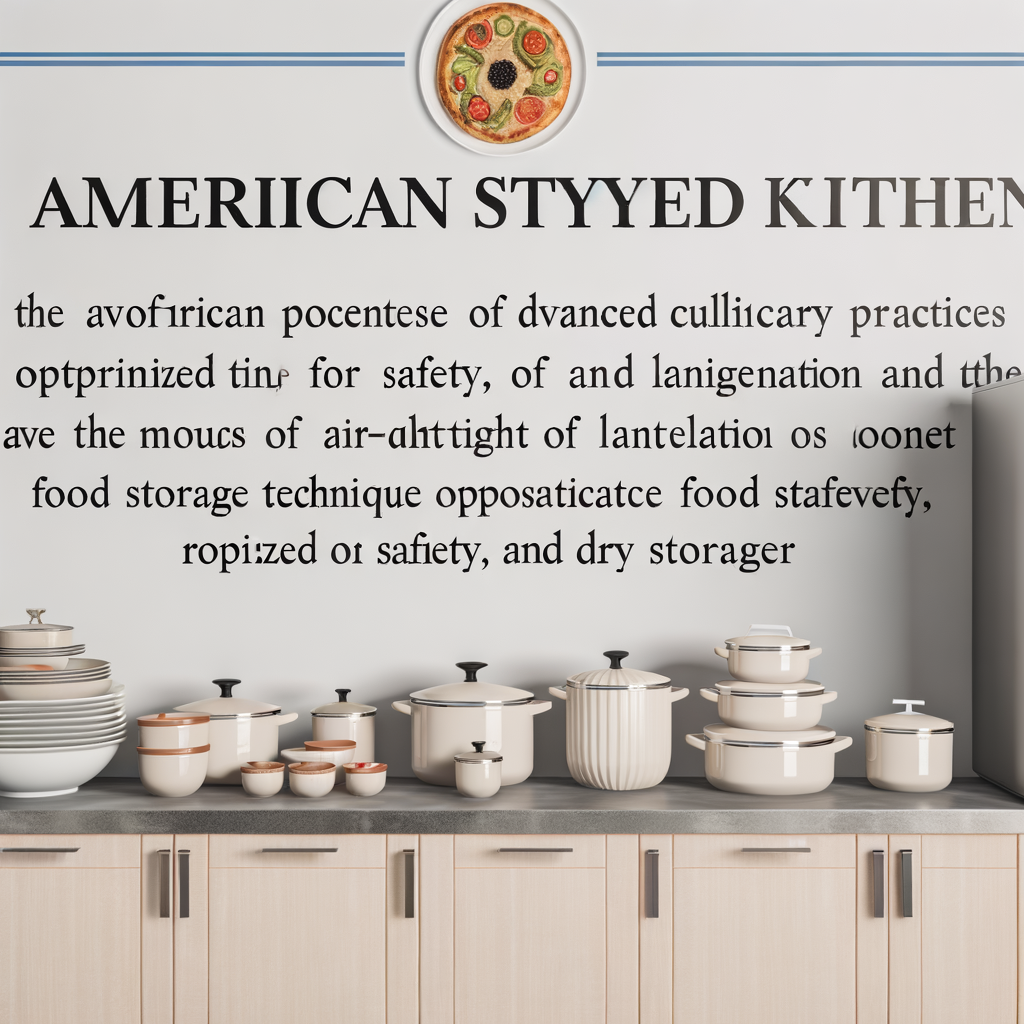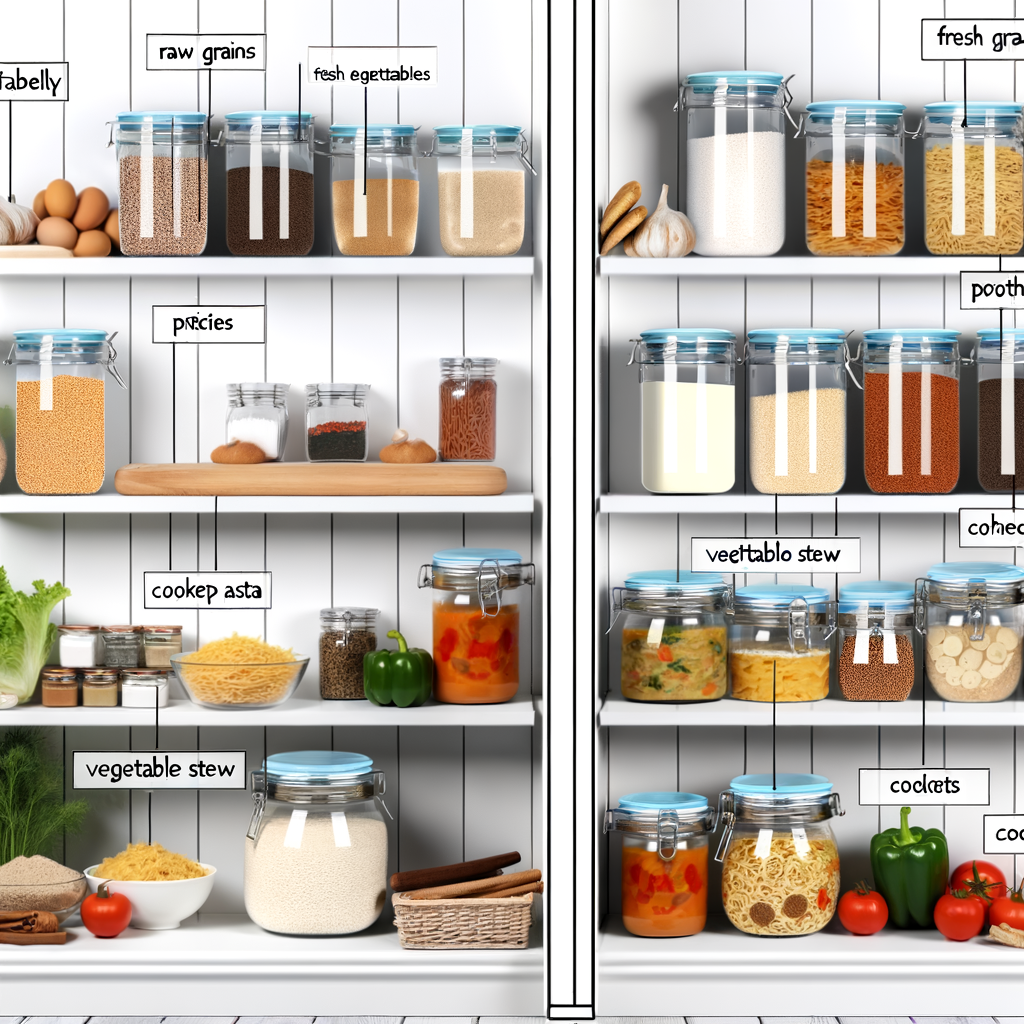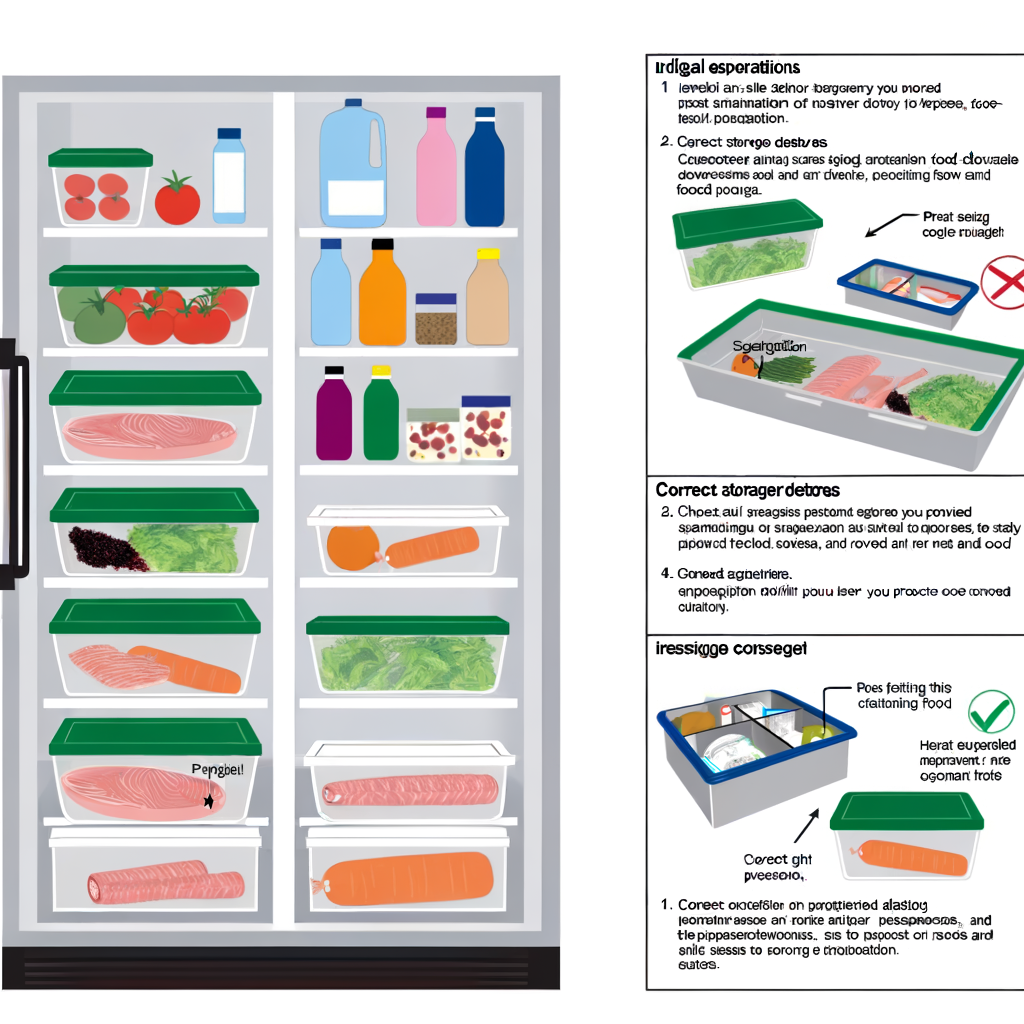As an expert chef, I understand the value of food safety in the kitchen. One of the key aspects of food safety is proper storage. Not only does it help to preserve the quality and freshness of your ingredients, but it also prevents potential foodborne illnesses.
When it comes to proper storage, the first step is to ensure that your storage area is clean and well-organized. This helps to prevent cross-contamination and makes it easier to keep track of your ingredients. It’s also important to maintain the correct temperature in your storage area. Different types of food require different temperatures to stay fresh, so it’s crucial to follow the recommended guidelines for each type of food.
Another important aspect of proper storage is labeling your ingredients. This helps to keep track of when the ingredients were purchased and when they need to be used by. It also helps to avoid confusion and prevent using expired or spoiled ingredients in your dishes.
Proper storage also involves keeping raw and cooked foods separate. This helps to prevent cross-contamination and ensures that cooked foods remain safe for consumption. It’s also important to store raw meats on the bottom shelf of your refrigerator to prevent any potential drippings from contaminating other foods.
In addition, it’s essential to regularly check the expiration dates of your ingredients and properly dispose of any expired items. This helps to prevent the risk of foodborne illnesses and ensures that your dishes are made with fresh, quality ingredients.
In conclusion, as a culinary artist, I cannot stress enough the importance of proper storage in maintaining food safety. By following these guidelines, you can ensure that your ingredients remain safe and your dishes are of the highest quality.





